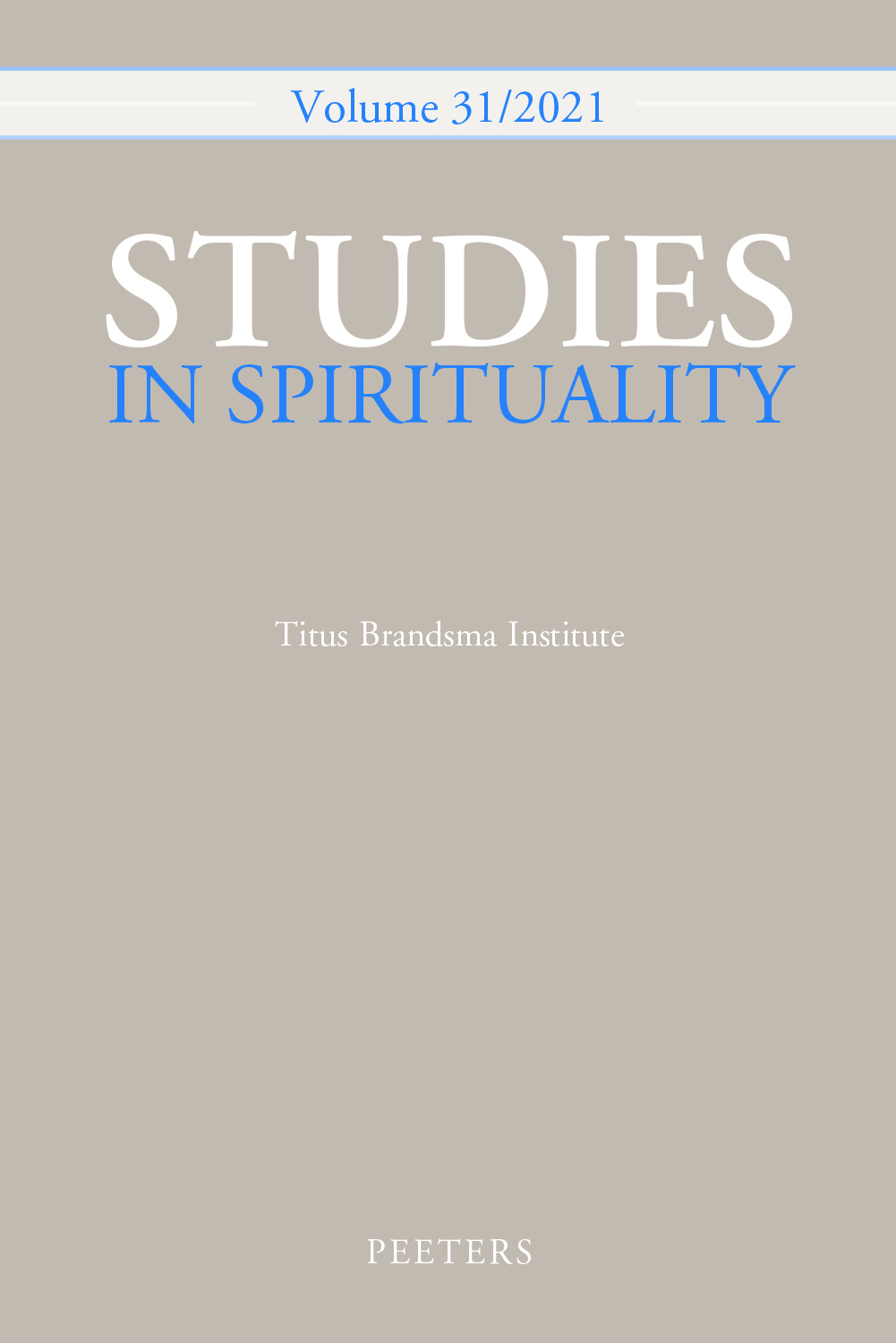 previous article in this issue previous article in this issue | next article in this issue  |

Preview first page |
Document Details : Title: The Rhetoric of Silence or How to Say God Today in the Poetry of R.S. Thomas Author(s): PEZZINI, Domenico Journal: Studies in Spirituality Volume: 22 Date: 2012 Pages: 213-242 DOI: 10.2143/SIS.22.0.2182853 Abstract : A God, whose name cannot be said, inhabits silence as his homeland. Even the Incarnation does not solve the problem of the ineffability of the Christian God, since his Son begins his human life as Verbum infans, the ‘Word without a word’, and ends it in the cosmic silence of the Cross. This fact gave rise to a branch of theology called apophatic, or ‘negative way’, based on the principle that we can talk about God only by saying what he is not. R.S. Thomas, ‘a colossus as influential as T.S. Eliot’ (Rowan Williams), strove all his life to renew religious language, for which he found ‘silence’ as the most effective way to protect God from superficial babbling or the tedious repetition of stock-phrases. The essay outlines Thomas’s poetic itinerary from silence experienced as frustration to the discovery of its potential force to purify our vocabulary and to provide spaces of attention where to catch epiphanies of the deity; silence thus becomes a ‘choice’, both in life and in language. This understanding leads to the elaboration of a 'theology of silence', in which the same progress from negative to positive is followed, so that the intrinsic weakness of language is turned into the practice of the resulting via negativa as a way to protect language, and faith, from the risk of idolatry. The ‘practical’ end of this itinerary is prayer, a space where, from ‘silence as a question’, a kneeling man comes to ‘question silence’ itself, and learns that life consists in waiting (another word for silence) patiently for an answer leading to find ‘fissures of mercy and trust’, while remaining conscious at the same time that ‘the eternal silence is the repose of God’, and possibly one of the ways for men to find peace in him and in themselves. |
|


